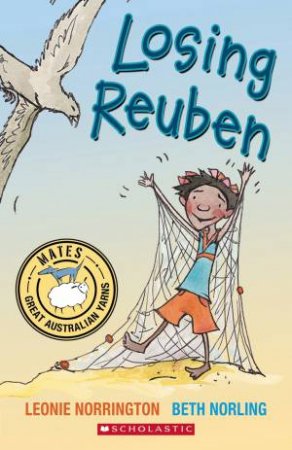Reuben is one of the younger children in a large Aboriginal family, and his mum has to count them all when they go out so no one gets lost or left behind. Reuben loves his mum's counting; it makes him feel safe. Each week the family goes fishing at the beach, and the story shows the different types of fishing and activities depending on the season. While challenging himself to keep up with his big, boisterous family, Rueben must overcome his fears and worries. Then, one week, Reuben is invited to join his big brothers fishing for prawns, his father gives him encouragement and advice. Will Reuben be up to the challenge, and can he overcome his fears and worries?
The story gives a detailed and realistic representation of Aboriginal families' relationship with the sea and fishing. Additionally, it references the sea animals the family catches on the beach, including oysters, queenies, salmon, mangrove worms, long bums and prawns. At the back of the book, there is a short two-page summary and history of the SaltWater Aboriginal peoples in Northern Australia and how they go to the beach to maintain a connection with the country.
The book is aimed at younger readers, just moving to chapter books. The simple print and colour pictures help build the reader's confidence. The author uses sophisticated and descriptive language such as "horizon", "silky mud", and "lazy waves slide", building a sensory image for the reader. The book is published with some words highlighted by changing the font to emphasise meaning. The combination of descriptive vocabulary and varied print brings the story alive for the reader.
Leonie Norrington was born in Darwin and grew up in the Barunga community in southern Arnhem Land. She was brought up within a mixed culture environment with Aboriginal stories and issues surrounding her. Leonie's tales reflect her childhood.
Series: Mates: Great Australian Yarns

